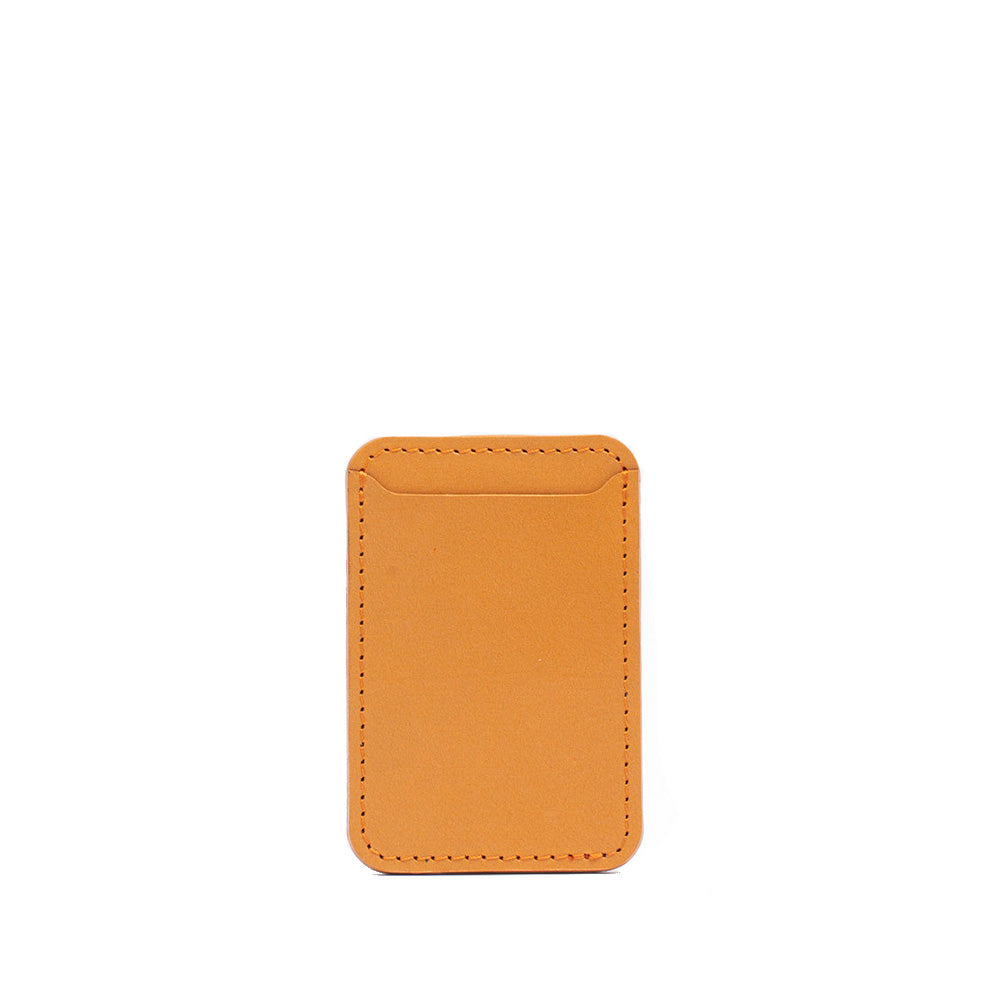Digital calendars offer unparalleled convenience, allowing us to track appointments, set reminders, and plan our days with precision. Within this landscape, Apple's built-in Calendar app for iPadOS stands out for its integration within the Apple ecosystem, offering a seamless experience across all Apple devices. This introduction sets the stage for an exploration of how Apple's Calendar compares to alternative apps, highlighting the evolving needs of modern users in their quest for optimal organization and productivity.
Calendar on iPadOS
Apple's built-in Calendar on iPadOS is a key organizational tool, designed for seamless scheduling. It enables effortless event creation, management, and synchronization across the Apple ecosystem, ensuring accessibility on iPhone, iPad, Mac, and Apple Watch. The app's intuitive interface, coupled with robust features like invitation management and reminders, offers a streamlined user experience. Its deep integration within Apple's ecosystem enhances productivity by keeping all devices in sync, making it an indispensable tool for users heavily invested in Apple products.

Key Features:
- Event creation and management
- Invitation sending and receiving
- Reminder setting
- Daily, weekly, monthly, and yearly views
User Experience and Interface:
- Intuitive, clean design
- Easy navigation with drag-and-drop functionality
- Streamlined planning and scheduling
Integration within the Apple Ecosystem:
- Seamless syncing across Apple devices (iPhone, iPad, Mac, Apple Watch)
- Unified organizational experience
- Enhanced productivity for Apple users
In our fast-paced digital world, calendars have become an indispensable tool for managing our schedules, appointments, and tasks. With the rise of mobile devices like the iPad, having a reliable digital calendar app is crucial for staying organized. Apple, known for its user-friendly software and seamless integration across its ecosystem, offers the built-in Calendar app for iPadOS. In this article, we will explore Apple's native Calendar app, examining its key features, user experience, and integration within the Apple ecosystem. We will also compare it to some popular alternative calendar apps to help you make an informed choice for managing your time efficiently.
Overview of Apple's Built-in Calendar

Apple's Calendar app on iPadOS boasts a range of essential features that cater to the needs of both casual users and professionals:
a. Intuitive Event Creation
- Creating events in the Calendar app is a breeze. You can add event details like title, location, date, and time with just a few taps.
b. Multiple Calendar Support
- It supports multiple calendars, allowing you to keep your personal, work, and shared calendars organized in one place.
c. Synchronization
- The app seamlessly syncs with iCloud, ensuring that your calendar data is up-to-date across all your Apple devices, including iPhone and Mac.
d. Alerts and Reminders
- You can set alerts and reminders for events, ensuring you never miss an important appointment or task.
e. Natural Language Input
- The app allows you to create events using natural language input. For example, typing "Lunch with John tomorrow at 1 PM" will automatically create an event with the correct date and time.
f. Time Zone Support
- Apple's Calendar app handles time zones effortlessly, making it convenient for users who frequently travel or collaborate across different time zones.
User Experience and Interface
Apple's commitment to user-friendly design extends to the Calendar app's interface. Its clean and intuitive layout makes it easy for users to navigate and manage their schedules. The app's minimalist design ensures that the focus remains on your events and appointments, without unnecessary clutter.
The intuitive drag-and-drop functionality allows you to effortlessly reschedule events and tasks by simply moving them to a different time or date. Furthermore, the app's integration with the iPad's larger screen provides a visually pleasing and efficient way to view your calendar.
Integration within the Apple Ecosystem
One of the standout features of Apple's Calendar app is its seamless integration within the broader Apple ecosystem. This means that your calendar data is effortlessly accessible across all your Apple devices, including iPhone, Mac, and even the Apple Watch. Changes made on one device automatically sync to the others, ensuring that you always have your schedule at your fingertips.
Additionally, the Calendar app leverages other Apple services such as Siri, making it possible to create, update, or check your schedule with voice commands. This level of integration enhances the overall user experience, as your calendar becomes an integral part of your digital life.
Stay tuned for the next part of our article, where we will delve deeper into some popular alternative calendar apps and see how they stack up against Apple's native offering. Whether you're a seasoned professional or a casual user, finding the right calendar app for your needs is crucial for efficient time management.
Alternative Calendar Apps
While Apple's native Calendar app offers a solid set of features and integration within the Apple ecosystem, some users may seek alternatives for various reasons. Different users have unique preferences and requirements when it comes to managing their schedules, which has given rise to a multitude of alternative calendar apps available on the App Store. These alternatives often cater to specific needs, provide additional features, or offer a different user experience.
Users exploring alternative calendar apps might be looking for:
Enhanced Features
- Advanced features such as task management, collaboration tools, or more extensive customization options.
Cross-Platform Compatibility
- Users who rely on non-Apple devices or platforms might prefer calendar apps that offer seamless cross-platform compatibility and synchronization.
Specialized Use Cases
- Some professionals or specific industries may require calendar apps tailored to their needs, such as project management, event planning, or client scheduling.
Design and User Interface
- Preferences for different aesthetics and user interface styles, as well as more customizable views of their calendars.
In this section, we will explore alternative calendar apps that offer unique features and cater to various user preferences.
Comparison with Apple's Calendar
In the previous sections, we explored a diverse range of calendar apps, each with its unique set of features and advantages. Now, let's compare these alternatives with Apple's built-in Calendar, highlighting their strengths and discussing scenarios where alternative apps might be preferable.
Apple's Calendar
- Integration within Apple Ecosystem: Seamlessly syncs with other Apple devices and services.
- Intuitive Interface: Known for its user-friendly design and straightforward navigation.
- Natural Language Input: Supports event creation using natural language input.
- Privacy: Offers a reasonable level of privacy, especially for users already committed to the Apple ecosystem.
- Basic Functionality: Provides essential calendar features without overwhelming users with options.
Alternative Calendar Apps
- Advanced Customization: Offer extensive customization options, allowing users to tailor the calendar to their specific needs.
- Task Integration: Many alternatives integrate task management features, making it convenient to manage events and to-do lists in one app.
- Privacy Focus: Some alternatives prioritize user privacy with features like end-to-end encryption and minimal data collection.
- Collaboration: Several alternative apps excel in collaboration and sharing functionalities, making them ideal for teams or families.
- Cross-Platform Compatibility: Many alternatives are available on various platforms, making them suitable for users with diverse devices.
User Scenarios
-
Advanced Users:
- Power users who require extensive customization, integration with task management, and more intricate scheduling options may find alternatives like Fantastical, BusyCal, or Calendars 5 more suitable.
-
Privacy-Conscious Users:
- Individuals who prioritize data privacy and security may opt for privacy-focused calendar apps such as Proton Calendar, or SimpleCal, which offer end-to-end encryption and minimal data collection.
-
Task Management Enthusiasts:
- Users who want a seamless combination of calendar and task management functionalities may prefer Any.do or Todoist, as these apps excel in managing to-do lists alongside events.
-
Collaborative or Team-Based Needs:
- For families, teams, or groups requiring shared calendars and robust collaboration features, TimeTree can simplify coordination.
-
Cross-Platform Users:
- Individuals who use multiple devices across different platforms may find alternative apps with cross-platform compatibility more convenient, as they ensure consistent access and synchronization across all devices.
-
Customization Aficionados:
- Users who appreciate extensive customization options for calendar views and event categorization may be drawn to apps like Fantastical, BusyCal, or Calendars 5.
Comprehensive Suite (Email + Calendar)
Two of the most popular and comprehensive calendar apps, both of which are available on the iPad, are Microsoft Outlook and Google Calendar. These apps not only provide powerful calendar functionalities but also integrate seamlessly with email and other services, offering a holistic approach to managing your digital life.
Microsoft Outlook

Microsoft Outlook is renowned for its all-in-one approach to email and calendar management. Here's an overview of its key features and integration capabilities:
- Email Integration: Outlook combines your email, calendar, and contacts into a single app, streamlining your communication and scheduling tasks.
- Scheduling Tools: It offers advanced scheduling tools like finding suitable meeting times, sending meeting invitations, and tracking responses.
- Cross-Platform: Outlook is available on multiple platforms, ensuring a consistent experience whether you're on an iPad, iPhone, Windows PC, or Android device.
- Integration with Microsoft 365: Users who rely on Microsoft 365 for work benefit from deep integration with services like OneDrive and Teams.
- Customization: Outlook allows for extensive customization, enabling users to tailor their email and calendar experience to their specific needs.
Google Calendar

Google Calendar, on the other hand, is a part of the Google ecosystem and provides its unique set of features and integration:
- Seamless Google Integration: Google Calendar naturally integrates with Gmail, Google Drive, and other Google services, making it ideal for users already invested in the Google ecosystem.
- Collaboration Features: Google Calendar excels in team collaboration, allowing for easy sharing of calendars, event invitations, and real-time editing of schedules.
- Smart Suggestions: It offers smart suggestions for event locations and meeting times, helping users save time when creating events.
- Cross-Platform Availability: Like Outlook, Google Calendar is available on a variety of platforms, ensuring accessibility from different devices.
- AI-Powered Features: Google Calendar leverages artificial intelligence to provide insights, such as predicting the best times for meetings based on participants' schedules.
Privacy-Focused Calendars
For users who prioritize privacy in their digital life, several privacy-focused calendar apps are available on the App Store. Let's take a closer look at three notable options:
Proton Calendar

Proton Calendar is developed by ProtonMail, a renowned provider of secure email services. Here's why it stands out:
- End-to-End Encryption
- Proton Calendar offers end-to-end encryption for all your events, ensuring that even the app's developers cannot access your sensitive data.
- Privacy-Centric Company
- ProtonMail has a strong reputation for its commitment to user privacy, making Proton Calendar a trustworthy choice for privacy-focused individuals.
- Cross-Platform
- It is available on multiple platforms, allowing users to access their encrypted calendar data from various devices.
Simple Calendar

Simple Calendar, developed with a focus on privacy and simplicity, stands out for its minimalistic approach to calendar management. This app requires minimal permissions, ensuring that users' data remains private. Unlike other calendar apps that may collect or share data, Simple Calendar provides a secure environment for scheduling without compromising on functionality. It's designed for individuals seeking a straightforward, efficient way to organize their time without the concern of data privacy issues. Accessible across various platforms, it enables users to keep track of their appointments and tasks securely.
Task Management Integration
In today's busy world, managing tasks and to-do lists often goes hand-in-hand with managing your calendar. For users who seek seamless integration between their calendar and task management, two popular apps come to the forefront: Any.do and Todoist.
Any.do

Any.do is a comprehensive task management app that offers a seamless integration with your calendar:
- Task and Calendar Integration
- Any.do allows you to create tasks and events within the same app, ensuring that your schedule and to-do list are always in sync.
- Cross-Platform
- It is available on multiple platforms, including iOS, Android, and web, enabling you to access your tasks and calendar from anywhere.
- Collaboration Features
- Any.do supports shared lists and collaborative tasks, making it suitable for both personal and team use.
- Smart Planning
- The app provides intelligent suggestions for task prioritization and scheduling, helping you make the most of your time.
Todoist

Todoist is another popular task management app known for its simplicity and robust features:
- Task Organization
- Todoist offers a powerful task organization system with projects, labels, and filters, allowing users to customize their task management workflow.
- Calendar Integration
- It syncs seamlessly with popular calendar apps like Google Calendar and Apple Calendar, ensuring that your tasks are reflected in your schedule.
- Productivity Metrics
- Todoist provides productivity metrics and insights, helping users track their task completion and time management.
- Cross-Platform Availability
- Todoist is available on various platforms, making it accessible from multiple devices.
Advanced Customization and Features
Fantastical, BusyCal, and Calendars 5 by Readdle
For users who require advanced customization options and a rich set of features in their calendar app, several premium options are available on the App Store. Let's delve into three notable choices in this category:
Fantastical

Fantastical is a well-regarded calendar app known for its flexibility and power-user features:
- Natural Language Parsing
- Fantastical shines in its natural language parsing capabilities, allowing users to create events and tasks in a conversational manner.
- Customizable Views
- The app offers highly customizable views, allowing you to tailor your calendar layout to your liking.
- Integration with Other Apps
- Fantastical integrates seamlessly with other apps and services, such as task managers and note-taking apps.
- Dark Mode
- It supports dark mode, providing a more comfortable viewing experience in low-light conditions.
BusyCal

BusyCal is a robust calendar app for macOS and iOS, favored by users who demand advanced customization and organization:
- Customizable Sidebar
- BusyCal's customizable sidebar provides quick access to various calendars, tasks, and event lists.
- Advanced Scheduling Tools
- It offers advanced scheduling features, including custom recurring events and snooze options.
- Tagging and Filtering
- BusyCal allows users to tag events and filter them based on specific criteria, enhancing organization.
- Sync with Apple Reminders
- Users can sync their events and tasks with Apple Reminders for added flexibility.
Calendars 5 by Readdle

Calendars 5 by Readdle is a versatile calendar app with a user-friendly interface and advanced features:
- Smart Widgets
- Calendars 5 offers smart widgets that provide quick access to upcoming events and tasks on your iPad's home screen.
- Natural Language Input
- Like Fantastical, Calendars 5 supports natural language input for easy event creation.
- Task Management
- The app includes basic task management features, allowing you to combine your calendar and to-do list.
- Custom Colors and Icons
- Users can customize event colors and icons, making it easy to visually categorize events.
These advanced calendar apps cater to users who need more than just basic scheduling capabilities. Whether you're a power user, a professional, or someone who appreciates extensive customization options, these apps offer the flexibility and features to meet your needs.
Collaboration and Sharing
Effective collaboration and sharing features are crucial for users who need to coordinate with others in their personal or professional lives.
TimeTree

TimeTree is a collaborative calendar app designed to help users manage shared schedules with ease:
- Shared Calendars
- TimeTree allows you to create shared calendars for various groups or projects, making it ideal for families, teams, or clubs.
- Chat and Memo Functions
- Users can communicate within the app through built-in chat and memo functions, streamlining coordination.
- Sync with Other Calendars
- TimeTree syncs with other popular calendar services, ensuring compatibility with your existing calendars.
- Event Invitations
- It supports event invitations and RSVP tracking, simplifying event planning.




